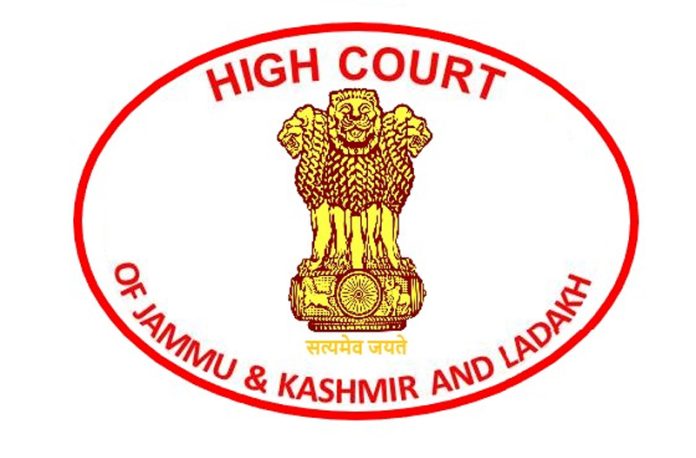‘Relevant provisions of BSF Act, Rules followed’
Excelsior Correspondent
JAMMU, Sept 24: High Court of Jammu & Kashmir and Ladakh has dismissed the petition filed by BSF constable, who was removed from the service for remaining absent from the duty for more than two years, with the observations that order has been passed by the respondents in consonance with the relevant provisions of BSF Act and Rules framed therein.
Through the medium of petition, the petitioner called in question the order of dismissal from service dated 12.12.2002, which was passed on account of overstay of leave, besides seeking quashment of all the departmental proceedings initiated against him.
After analyzing the rival submissions made by both the parties and perusal of record, Justice Wasim Sadiq Nargal observed, “essentially, the controversy in the instant case boils down to two essential issues—whether the extended period of overstay by the petitioner is justified or not and whether the respondents have followed the mandate of the Border Security Forces Act 1969 and Rules framed therein, while proceeding with inquiry and dismissal of petitioner from service”.
“It is imperative to note that members of uniformed forces in particularly, having regard to the nature of the duties enjoined upon them, are expected to observe a higher duty of care in case of abstention from duty. As such, the extended period of overstay by the petitioner cannot be justified by taking a mere plea of a medical condition at the end of two years”, the High Court said.
Pointing towards the main contentions of the petitioner-breach of Section 62 of the BSF Act read with Rule 177 and Rule 22 and the procedure prescribed under Rule 173(8) of BSF Rules, the High Court said, “petitioner was firstly issued a notice dated 19.06.2002 at his residential address in District Satara, Maharashtra, whereby, he was directed to report back to his headquarters. Another notice dated 26.06.2002 was issued to the petitioner, followed by an apprehension roll dated 20.07.2002 under Section 60 and 61 (1) of BSF Act, 1968, whereby the concerned Senior Superintendent of Police was requested to apprehend and handover petitioner to the Commandant 30 5BN BSF for taking disciplinary action against him”.
“Lastly, a show-cause notice dated 10.09.2002 was issued to the petitioner, whereby he was provided with an opportunity to raise his defence and along with it, a copy of the Court of Enquiry was provided to the petitioner. This clearly shows that the mandate as per the Section 62 of the BSF Act was followed in its letter and spirit”, High Court said.
About proportionality of the punishment which has been imposed on the petitioner, High Court said, “Apex Court has already held that under Article 226/227 of the Constitution of India, the High Court shall not go into the proportionality of punishment, unless it shocks its conscience and provided various parameters for intervention by the High Court”.
“In the instant case, petitioner has admittedly remained absent from duty from a disciplinary force of BSF for more than two years. Accordingly, the respondents have chosen to impose the punishment of dismissal from service”, Justice Nargal said, adding “keeping in view the principles of law laid down by the Apex Court, this court is of the view that the order of dismissal of the petitioner from service does not suffer from any legal infirmity and the same has been passed by the respondents in consonance with the relevant provisions of BSF Act and Rules framed therein”.
With these observations, High Court dismissed the petition.


